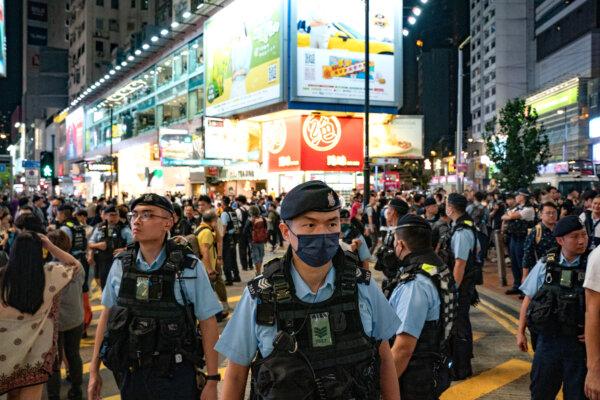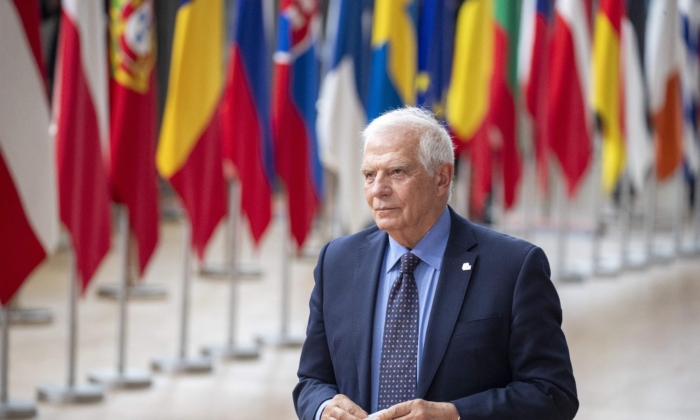EU Commission Vice President: CCP Undermining ‘One Country, Two Systems’ in Hong Kong
The European Union has expressed concerns about the diminishing freedom and autonomy of Hong Kong, as European Commission Vice-President Josep Borrell stated that Beijing is undermining its commitment to the “one country, two systems” principle in the region.
Enshrined in the Sino-British Joint Declaration, this principle allows Hong Kong to operate under its own systems and way of life within China until 2047. However, the international community has always been skeptical of China’s promise, especially since the territory was handed back to Chinese rule by the British in 1997.
On June 13, the European Commission released its annual report on the situation in Hong Kong. The report highlighted a continuous erosion of rights and freedoms in Hong Kong since the introduction of China’s National Security Law (NSL) in 2023.
“The 2023 annual report details the ongoing deterioration of rights and freedoms in Hong Kong and the erosion of the ‘one country, two systems’ principle,” Mr. Borrell remarked.
The report also pointed out the exclusion of political opposition in Hong Kong from elections, the use of the NSL to suppress dissent, and the impact on Hong Kong’s reputation as an international business hub.
This marks the 26th annual report by the Commission on developments in Hong Kong since its transfer from British to Chinese rule.
The report also focused on the erosion of autonomy and fundamental rights in Hong Kong, particularly noting the decline in political pluralism following the electoral overhaul of the District Councils.
It highlighted how candidates faced extensive vetting processes, resulting in no pro-democracy candidates qualifying for election, and the subsequent exclusion of pro-democracy opposition from both the Legislative Council and the District Council.
Additionally, the report mentioned an escalation in the extraterritorial application of the NSL, with Hong Kong authorities targeting activists overseas and issuing arrest warrants against pro-democracy figures. The NSL has been used against individuals and organizations advocating for democratic freedoms in Hong Kong.
The Commission’s report also highlighted the revival of colonial-era sedition laws in Hong Kong’s legal system and the prolonged detention of activists, some in solitary confinement. These developments have raised concerns about the erosion of confidence in the rule of law in Hong Kong.

Slight Economic Uptick After COVID Restrictions Lifted
The report also highlighted the slight economic growth in Hong Kong in 2023 following the easing of COVID-related travel restrictions. The EU remains a significant trading partner with Hong Kong, supporting its economic recovery.
Despite the economic growth in 2023, Hong Kong’s economy has not fully recovered to pre-pandemic levels, and concerns about inflation and trade restrictions remain.
EU’s Response to Changes in Hong Kong
Based on the report, the EU has raised concerns about Hong Kong’s governance since its return to China and adopted measures to address the erosion of autonomy and democratic freedoms in the region. These measures include asylum policies, export limitations, and support for civil society.
Despite objections from Hong Kong authorities, the EU remains committed to monitoring the human rights situation in Hong Kong and advocating for democratic principles in the territory.
On June 19, 2019, millions of Hong Kong residents protested against a controversial extradition bill, leading to the eventual passage of the National Security Law. The subsequent use of the NSL has raised concerns about freedom of expression and human rights in Hong Kong.





